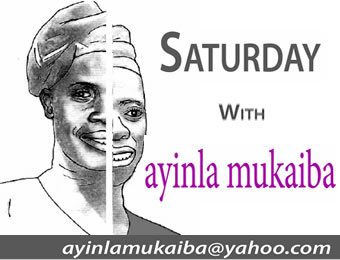Pulpit petrel, Ejike Mbaka, priest of the Catholic faith of the Enugu diocese broke his not-too long silence recently. Delivering what amounted to a homily, but this time not to the restricted audience of his Adoration Ground in Enugu, Mbaka mirrored the frustration and disappointment of the Nigerian people in the Muhammadu Buhari government. There is massive hunger and misery in the land, Mbaka told the president, urging him to do something urgent about the plight of the people before things turned into calamity for both his government and the people he was elected to govern.
Mbaka has allies in many Nigerians who daily lament the economic stasis that Nigeria currently finds herself in. In homes, on the streets, at fora and in virtually every nook and cranny where discussion of the personal and national economies of Nigerians is held, Nigerians are lamenting their fates in the present day Nigeria. Since it is not a far away hypothesis but a daily experience, he who feels it in the Nigerian people is in a greater position to proffer knowledge of it. Many Nigerians say that in their adult years, they had never faced this level of suffering and economic hardship before. To some, only during the Nigerian civil war did they pass through a harrowing fate similar to this hopelessness superintended over by the Buhari government.
One unifying factor about it is that friends and enemies of the current government are agreed on the sloppy handling of the Nigerian economy that has resulted in this grinding hopelessness. Agreed that the colossal fraud and mismanagement of the economy under the Goodluck Jonathan administration were the precursor of the current unpalatable fate of Nigerians, it is apparent that a more fluid management of the economy by the Buhari government would have reduced the suffering that Nigerians go through today. It is so bad that there are more hopeless people on the streets today than there are those who have hope that their tomorrow would be better under this government.
If Nigeria were a statistical country, we would have been confronted by the acute figure of an intense and widespread despondency in the land. If you were someone who frequents hospitals, you would be apprised of fellow countrymen, who a few months ago were proud Nigerians fulfilling their existential obligations, falling prey to inability to pay minor medical bills. Many have died in the hospitals for inability to pay these bills and the failure of the hospitals to treat them pro-bono. Nigerians have become beggars in their own homes and on the streets, discountenancing the human dignity that used to be their shield before now.
Talking about bareness of dignity in the land. The rate at which tenant-landlord schism has widened today is alarming. While tenants who a short while ago were loyal and responsible tenants, fulfilling their obligations without let, are finding it increasingly difficult to continue on this path, their landlords’ acrimonies have increased, causing clashes and foul disagreements in the process. The rate of depression, suicide, minor violence induced by hopelessness and street brawls is on the increase.
Parents cannot fulfill their obligations to their children. This has upped the number of teen prostitutes who take to the streets to augment the less-than-enough support from parents. Empathy and supports from home to home and family to family, that were the hub of the collective life lived by Nigerians as Africans have dried up and neighbours watch their neighbours wallow in penury without compulsion to assist, aware that the little they themselves possess can barely sustain them.
The problem of hunger and misery in the land is metastasizing by the day. The tragedy is that the Buhari government does not seem to have a clue to its abatement. If the economic problem were one that has an expiry, Nigerians, reputed to be one of the most enduring species of nature’s creation, with an ability to endure pangs of dislocation without visible show of strains, would tag along, waiting for the day of redemption. The problem is that the duo of government and the governed are in a bind and do not have a fog of where hope is coming from. To me, this is indeed the real tragedy.
This is why the Mbaka homily is very instructive and relevant. Buhari has done well in combating corruption in the land. He has shown us the maggots that inhabited our midst for almost decades of our existence, and has exhilarated the corps of Nigerians who appear to be titillated by news of scandal. However, that is all there is to it. The government has not allowed the people to transit from this level of scandal excitement into benefitting from the so-called loots recovered from their assailants who a few months ago, were the ‘timber and caliber’ in the country.
Today, a dollar exchanges for N400 and a pound N510. This has had ripple effects on purchases, causing groaning and wailing in Nigerian homes. What is perhaps the most tragic of it all is that government is not communicating its limitations to the people. The president is hyper taciturn and the people who surround him have been bitten by his taciturnity. This has led to a mythic economy and a financial situation of the country fattened on growing rumours and skepticism by the generality of the people.
This is where Mbaka deserves kudos, even though if you read between the lines of his homilies, his outburst could jolly well be the personal frustration of a political clergy who ‘prophesized’ Buhari’s ascendancy.





